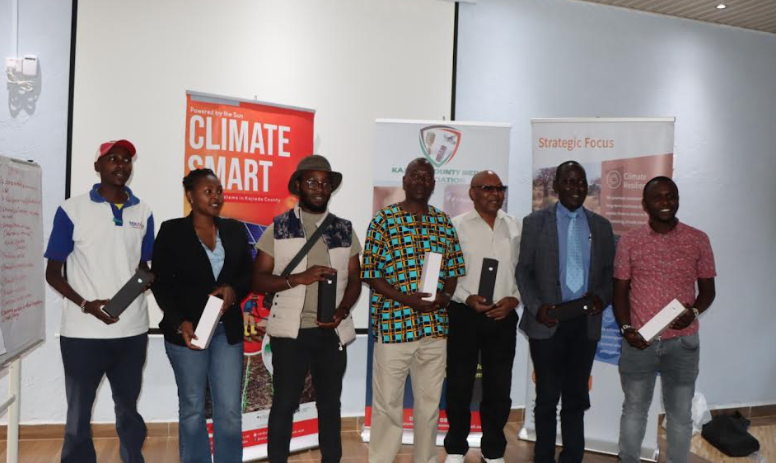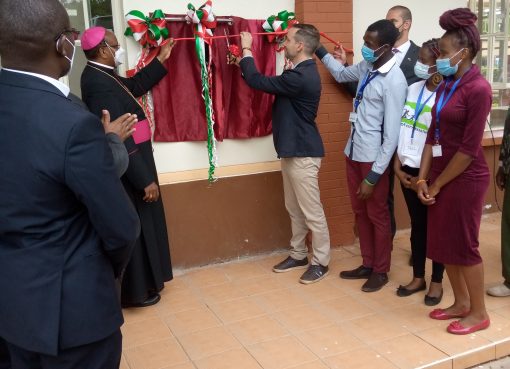Journalists drawn from various media houses in Kajiado County have benefitted from a two-day training on climate change reporting and climate smart agriculture.
The training organised by the Kajiado County Media Association (KCMA) in conjunction with Arid Lands Information Networks (ALIN) sensitised the journalists on climate change impacts and mitigation measures.
According to James Nguo, Regional Director of ALIN, climate change has resulted in adverse effects on society, and journalists have a big role to play in sensitising and educating the public on how to conserve the environment so as to mitigate its effects.
Addressing the scribes during the training, Nguo said Kajiado is among the most affected counties by climate change.
He noted the need for residents to adapt to climate-smart agricultural practices such as drip irrigation, agroforestry, crop rotation, and conservation tillage, among others, in order to ensure food security.
“Climate change has affected food security, especially in Kajiado County, and there is a need to adapt to climate-smart agricultural techniques such as drip irrigation,” he said.
Joseph Macharia, an agroeconomist, reiterated that prolonged drought has negatively impacted agricultural production in the county as rain-fed farming is no longer viable.
Macharia revealed that human activities such as sand harvesting, encroachment on riparian areas, rampant felling, and burning of trees for charcoal have played a major role in climate change.
“We have witnessed reduced agricultural activity in the county due to depressed rains. Rain-fed agriculture is no longer viable as the county witnesses’ long periods of drought,” he said.
The agroeconomist pointed out other distinct issues which have been identified as activators of climate change, including changes in the earth’s orbit around the sun.
Others, he said, are the variations in the output of energy from the sun and changes in ocean circulation resulting mainly from fluctuations in the upwelling of deep, cold waters in the tropical Pacific Ocean.
Mostly, he said, the composition of the atmosphere has been altered by human activities for over 200 years.
On his part, Joseph Ruto, an agricultural expert, added that one of the drivers of climate change was global warming, which is caused by a buildup of greenhouse gases.
The five major greenhouse gases, he said, are carbon dioxide (CO2), methane (CH4), nitrous oxide (N2O), trifluoromethane (CF2), and sulphur hexafluoride (SF6).
Ruto said climate change has already altered the water cycle, affecting where, when, and how much water is available for all uses.
Peterson Githaiga, Chairman of the Kajiado County Media Association, said the training was timely as the effects of climate change were currently being witnessed and had impacted society negatively.
He reiterated the importance of educating the public on how to mitigate the effects of climate change through climate-smart agriculture and environmental conservation.
By Rop Janet





